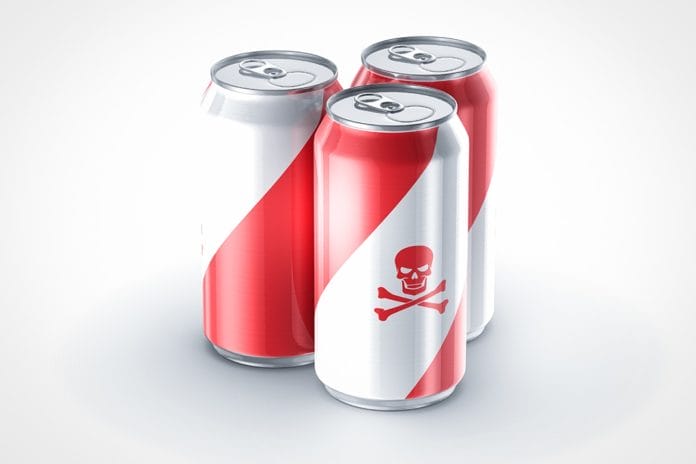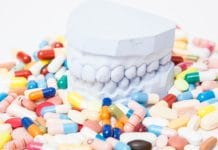As a whole, we are a health-conscious society. Exercise and diet play a major role in our attempt to become and remain healthy. Diet colas are thought of by many to be a healthy alternative to regular colas. Advertising contributes greatly to our idea that diet cola will make us look more energized and alluring, but is it really a healthy choice switching from regular cola to diet cola? The fact is, you are saving yourself from the consumption of 140 calories, but the chemical cocktail has so many negative side effects. The extra calories certainly outweigh the possible side effects of diet colas.
Unfortunately, diet colas have been marketed for decades as a healthy alternative to the sugary infestation of regular colas. What the consumer may not know is that the artificially sweetened chemical cocktail actually confuses your body into craving even sweeter foods.1 This can lead to a very frustrating path of unsuccessful attempts at weight loss. In fact, it can cause a series of unfortunate health issues for someone who drinks diet colas on a daily basis.
Recently a 40+year old, moderately overweight female patient was seen in my dental chair for her six-month checkup. Upon reviewing her health history, it was discovered she has diabetes, takes bone density medication, as well as a plethora of additional prescription medications. Upon visual examination of her teeth, I noticed they were chalky in appearance, most likely partially due to medication-induced xerostomia. However, upon closer examination, I noted the classic cervical decalcification rings as well, which in my experience, is usually caused by acidic or sugary liquids.
We discussed her diet and the effects of sugary liquids on teeth. This was when the patient divulged she only drinks diet cola. She also divulged her physician told her she has what he calls “broken glass bone syndrome,” (patient’s words) however, “brittle bone disease” seems a more accurate description. Of course, this is when that “aha” moment hit me, so I educated her on the negative health effects (phosphates causing osteoporosis) and oral effects of diet colas, thinking she too would have an “aha” moment. Well, my “aha” moment turned into a “yikes” moment when she proudly stated she had recently reduced her diet cola intake from 2 GALLONS a day to only 1 1/2 GALLONS per day. She thought this was a substantial improvement, as this is her only source of liquid. My internal scream wondered, “Why on earth hadn’t her medical doctor caught this?”
The problem is diet cola has no nutritional value and people think since they are saving calories by drinking the diet colas, they allow themselves other guilty pleasures, therefore bypassing the thinner waist they are trying to attain. The artificial sweeteners actually trigger insulin which causes the body to store fat and gain weight.1 Phosphates in the diet colas also contribute to osteoporosis, which may explain her “broken glass bone syndrome.” Drinking just one diet soda a day is associated with a 36% increased risk of metabolic syndrome and diabetes. This puts people at risk for heart disease, stroke, and diabetes, as well as osteoporosis, headaches, and depression.1 I would have to add addiction to the side effects because it seems that people who drink diet colas become faithful to the product to the point of addiction.
As hygienists, we are very aware of the oral and whole body correlations. Our motivational interviewing is part of the daily investigative inquiry. What I question is, why isn’t the medical community connecting the dots and asking patients more questions about their diet consumption? Possibly they are not aware of the connection between the chemical cocktails called diet colas and the negative medical side effects they may have on the system. Perhaps educating our dental patients to ask the right questions at their yearly medical checkups could help bridge the gap between dental and medical.
SEE ALSO: Flossing: An Inexpensive Way to Add Years to Your Life
DON’T MISS: A Peek Into the Link Between the Oral Cavity and Other Health Conditions
Now Listen to the Today’s RDH Dental Hygiene Podcast Below:
Reference
- Squillace, M. 10 Reasons to Give Up Diet Soda. Health. Retrieved from https://www.health.com/health/gallery/0,,20739512,00.html











